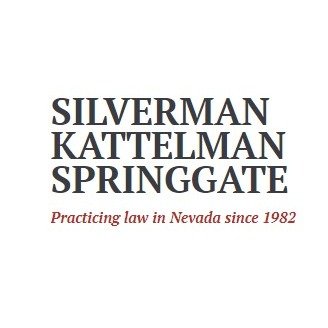Best Corporate Governance Lawyers in Reno
Share your needs with us, get contacted by law firms.
Free. Takes 2 min.
List of the best lawyers in Reno, United States
About Corporate Governance Law in Reno, United States
Corporate governance refers to the systems, principles, and processes by which companies are directed and controlled. In Reno, United States, corporate governance law provides the framework for managing the relationships among a company’s management, its board of directors, shareholders, and other stakeholders. Strong governance ensures transparency, accountability, and fair treatment of all parties, reducing risk and promoting long-term business success. In addition to federal corporate regulations, Nevada state law, where Reno is located, is known for being favorable to businesses, with flexible and business-friendly statutes designed to attract and retain companies.
Why You May Need a Lawyer
You may need a lawyer specializing in corporate governance in Reno for several reasons. Common situations include:
- Forming or dissolving a corporation or limited liability company (LLC).
- Drafting or updating corporate bylaws and operating agreements.
- Handling disputes between shareholders or board members.
- Resolving conflicts of interest within the company.
- Ensuring compliance with both state and federal laws.
- Navigating mergers, acquisitions, and corporate restructuring.
- Dealing with regulatory investigations or enforcement actions.
- Advising on corporate ethics and best practices for management and governance.
Retaining a lawyer helps businesses prevent costly litigation, comply with complex regulations, and foster a corporate environment of accountability and integrity.
Local Laws Overview
Corporate governance in Reno is primarily governed by the laws of the State of Nevada and, to some extent, local ordinances and federal regulations. Nevada is recognized for its pro-business stance, offering limited liability protections and privacy for company owners and shareholders. Key aspects of Nevada law impacting corporate governance in Reno include:
- The Nevada Revised Statutes (NRS), particularly chapters 78 (corporations) and 86 (LLCs).
- Flexible rules allowing for the customization of bylaws and operating agreements.
- Minimal requirements for board structure and shareholder meetings compared to many other states.
- Protections for directors and officers against personal liability for corporate acts made in good faith.
- Regulations mandating annual filings and transparent record-keeping practices.
Federal regulations, such as the Sarbanes-Oxley Act, may also apply to publicly traded companies operating in Reno, setting standards for financial reporting and corporate accountability.
Frequently Asked Questions
What is corporate governance?
Corporate governance is the framework of rules, relationships, and processes implemented by company leadership to ensure the organization is run ethically, transparently, and in the interests of shareholders and stakeholders.
What are the main duties of a board of directors in Reno?
The board's duties include overseeing management, setting strategic goals, ensuring legal compliance, preventing conflicts of interest, and safeguarding shareholder interests according to Nevada law.
Does Nevada require companies to have annual meetings?
Yes, Nevada corporations must hold at least one annual shareholder meeting, but the format and location can often be customized to fit the corporation's needs.
How can a company change its bylaws in Reno?
Bylaws can typically be amended by a vote of the board of directors or shareholders, depending on the existing bylaws and articles of incorporation. Legal guidance is recommended to ensure compliance with Nevada statutes.
Are there privacy protections for company owners in Reno?
Nevada is known for offering strong privacy protections, not requiring the public disclosure of company owners or shareholders in state filings for most entities.
What are the risks of poor corporate governance?
Poor governance can lead to legal penalties, loss of investor confidence, decreased business value, internal conflict, and potential personal liability for directors and officers.
When should a company consult a corporate governance lawyer?
Companies should consult a lawyer when forming a business, changing its structure, facing disputes or litigation, developing governance policies, or if there are concerns about compliance or best practices.
Are there specific rules for nonprofits in Reno?
Yes, Nevada state law has provisions specifically for nonprofit organizations which may differ from those for for-profit corporations. Proper governance policies and compliance are essential for maintaining nonprofit status.
Can a single individual form a corporation or LLC in Reno?
Yes, Nevada allows single-member LLCs and corporations with just one shareholder and one director or officer, providing flexibility for small and startup businesses.
What records must be kept for compliance in Reno?
Corporations and LLCs in Reno must keep accurate records of board meetings, shareholder meetings, financial statements, and other important corporate documents for compliance and transparency.
Additional Resources
There are several resources and organizations in Reno and Nevada that can assist with corporate governance issues:
- Nevada Secretary of State - Responsible for business registration and compliance filings.
- Nevada State Bar Association - Provides lawyer referrals and legal education.
- Small Business Administration (SBA) Nevada District Office - Offers business legal resources and guidance.
- University of Nevada, Reno - Business and law programs that may provide community clinics or guidance.
Next Steps
If you need legal assistance with corporate governance in Reno, consider these steps:
- Document your concerns and gather relevant corporate documents such as articles of incorporation, bylaws, meeting minutes, and contracts.
- Contact a qualified corporate governance attorney experienced in Nevada law for a consultation.
- Review your current governance structure and company policies with your attorney.
- Ask about ongoing legal advisory services to ensure your business remains compliant as regulations evolve.
- Utilize local and state resources for education and support to ensure your company upholds the best corporate governance practices.
Taking prompt and informed action can protect your company's interests, promote long-term stability, and avoid unnecessary legal complications.
Lawzana helps you find the best lawyers and law firms in Reno through a curated and pre-screened list of qualified legal professionals. Our platform offers rankings and detailed profiles of attorneys and law firms, allowing you to compare based on practice areas, including Corporate Governance, experience, and client feedback.
Each profile includes a description of the firm's areas of practice, client reviews, team members and partners, year of establishment, spoken languages, office locations, contact information, social media presence, and any published articles or resources. Most firms on our platform speak English and are experienced in both local and international legal matters.
Get a quote from top-rated law firms in Reno, United States — quickly, securely, and without unnecessary hassle.
Disclaimer:
The information provided on this page is for general informational purposes only and does not constitute legal advice. While we strive to ensure the accuracy and relevance of the content, legal information may change over time, and interpretations of the law can vary. You should always consult with a qualified legal professional for advice specific to your situation.
We disclaim all liability for actions taken or not taken based on the content of this page. If you believe any information is incorrect or outdated, please contact us, and we will review and update it where appropriate.











